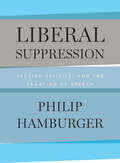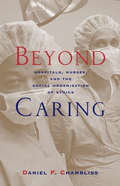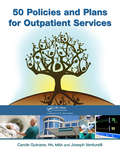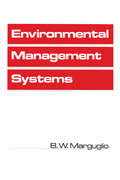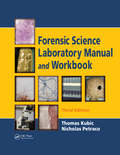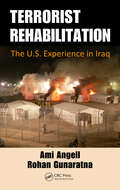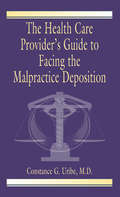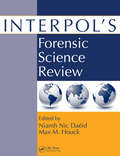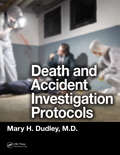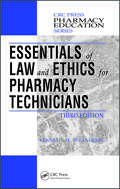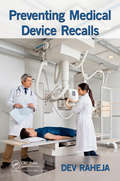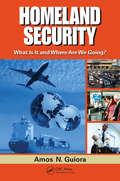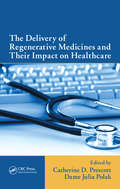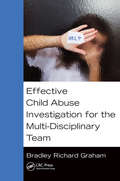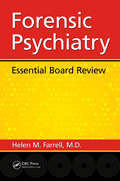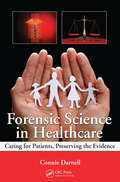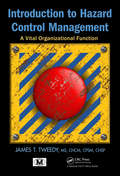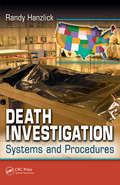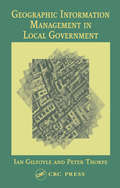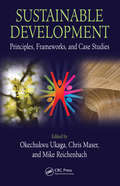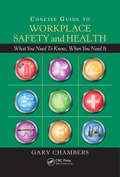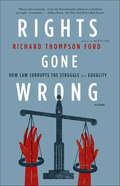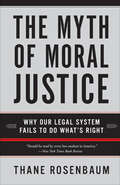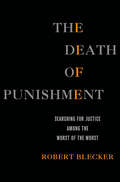- Table View
- List View
Wildlife as Property Owners: A New Conception of Animal Rights
by Karen BradshawHumankind coexists with every other living thing. People drink the same water, breathe the same air, and share the same land as other animals. Yet, property law reflects a general assumption that only people can own land. The effects of this presumption are disastrous for wildlife and humans alike. The alarm bells ringing about biodiversity loss are growing louder, and the possibility of mass extinction is real. Anthropocentric property is a key driver of biodiversity loss, a silent killer of species worldwide. But as law and sustainability scholar Karen Bradshaw shows, if excluding animals from a legal right to own land is causing their destruction, extending the legal right to own property to wildlife may prove its salvation. Wildlife as Property Owners advocates for folding animals into our existing system of property law, giving them the opportunity to own land just as humans do—to the betterment of all.
Liberal Suppression: Section 501(c)(3) and the Taxation of Speech
by Philip HamburgerIn the course of exempting religious, educational, and charitable organizations from federal income tax, section 501(c)(3) of the Internal Revenue Code requires them to refrain from campaign speech and much speech to influence legislation. These speech restrictions have seemed merely technical adjustments, which prevent the political use of a tax subsidy. But the cultural and legal realities are more disturbing. Tracing the history of American liberalism, including theological liberalism and its expression in nativism, Hamburger shows the centrality of turbulent popular anxieties about the Catholic Church and other potentially orthodox institutions. He argues persuasively that such theopolitical fears about the political speech of churches and related organizations underlay the adoption, in 1934 and 1954, of section 501(c)(3)’s speech limits. He thereby shows that the speech restrictions have been part of a broad majority assault on minority rights and that they are grossly unconstitutional. Along the way, Hamburger explores the role of the Ku Klux Klan and other nativist organizations, the development of American theology, and the cultural foundations of liberal “democratic” political theory. He also traces important legal developments such as the specialization of speech rights and the use of law to homogenize beliefs. Ultimately, he examines a wide range of contemporary speech restrictions and the growing shallowness of public life in America. His account is an unflinching look at the complex history of American liberalism and at the implications for speech, the diversity of belief, and the nation’s future.
Beyond Caring: Hospitals, Nurses, and the Social Organization of Ethics (Morality And Society Ser.)
by Daniel F. ChamblissVividly documenting the real world of the contemporary hospital, its nurses, and their moral and ethical crises, Dan Chambliss offers a sobering revelation of the forces shaping moral decisions in our hospitals. Based on more than ten years' field research, Beyond Caring is filled with eyewitness accounts and personal stories demonstrating how nurses turn the awesome into the routine. It shows how patients, many weak and helpless, too often become objects of the bureaucratic machinery of the health care system and how ethics decisions, once the dilemmas of troubled individuals, become the setting for political turf battles between occupational interest groups. The result is a compelling combination of realism and a powerful theoretical argument about moral life in large organizations.
50 Policies and Plans for Outpatient Services
by Carole Guinane Joseph VenturelliSince more and more surgeries and procedures are being performed in outpatient settings, the policies, plans, and procedures for these services are of increasing importance. 50 Policies and Plans for Outpatient Services details commonly used policies and plans in free-standing ambulatory care centers. Included are plans and policies concentrating on emergency management, medication safety, informed consent, and medical staff credentialing to name a few.As an introduction to the model documents presented, the book begins with a how-to chapter to guide readers through the process of formatting the documents and making them their own. The policies and plans discussed serve as templates and can apply to licensing and regulatory agencies such as Medicare, the Joint Commission, and AAAHC. The documents included in this book are excellent templates to use as a starting point for producing policies and plans that help create the flow and process in an organization. Knowing their specific local, state, and other governing agency requirements, readers can customize the documents to reflect the unique structure and qualities of their organization through the use of the downloadable resources. The resulting policies, procedures, and plans are the back-up documents that provide rationale, vision, and theory, and can be valuable tools for making effective clinical and administrative decisions. In addition to the documents provided on the downloadable resources, the book also includes a list of helpful resources.
Environmental Management Systems
by B. MarguglioThis book discusses the features of the environmental policies and procedures that should exist at the plant level and thus helps utility, petrochemical, chemical, pharmaceutical, and other manufacturing industries benefit technically and economically by implementing these feature.
Forensic Science Laboratory Manual and Workbook
by Thomas Kubic NICHOLAS PETRACOA laboratory companion to Forensic Science: An Introduction to Scientific and Investigative Techniques and other undergraduate texts, Forensic Science Laboratory Manual and Workbook, Third Edition provides a plethora of basic, hands-on experiments that can be completed with inexpensive and accessible instrumentation, making this an ideal workbook f
Terrorist Rehabilitation: The U.S. Experience in Iraq
by Rohan Gunaratna Ami AngellBecause terrorists are made, not born, it is critically important to world peace that detainees and inmates influenced by violent ideology are deradicalized and rehabilitated back into society. Exploring the challenges in this formidable endeavor, Terrorist Rehabilitation: The U.S. Experience in Iraq demonstrates through the actual experiences of m
The Health Care Provider's Guide to Facing the Malpractice Deposition
by Constance G. Uribe M.D.An anesthesiologist chips a patient's tooth during a difficult intubation. A surgeon leaves tiny abrasions on a patient's abdomen during a delicate surgical procedure. And an operating room nurse accidentally nips a patient's finger with a pair of scissors.Not all of these examples of medical mistakes will result in malpractice suits. But for the o
Interpol's Forensic Science Review
by Max M. Houck Niamh Nic DaéidEvery three years, worldwide forensics experts gather at the Interpol Forensic Science Symposium to exchange ideas and discuss scientific advances in the field of forensic science and criminal justice. Drawn from contributions made at the latest gathering in Lyon, France, Interpol's Forensic Science Review is a one-source reference providing a comp
Death and Accident Investigation Protocols
by Mary H. DudleyThrough an examination and assessment of the body at a death scene, the medicolegal death investigator (MLDI) must be able to recognize circumstances that point to what manner of death occurred—be it natural causes, homicide, suicide, accident, or undetermined. A handy reference for use in the field and in the lab, Death and Accident Investigation Protocols provides 34 checklists and forms to help investigators make these determinations.Categories of death covered in this guide include: Aircraft and motor vehicle accident Alcohol- and drug-related Blunt- and sharp-force injury Drowning Electrocution, exposure, and fire Gunshot Hanging Hospital- and nursing home-related Infectious disease Natural causes Occupational exposure Poison and toxic substances Sexual assault Suicide Formatted as a convenient 8 ½ x 11 spiral-bound book, this manual helps investigators know what to look for, what questions to ask, and how to categorize the scene and the physical injuries. The forms in the book can either be downloaded, which allows for easy form modification. The text includes descriptive illustrations and diagrams associated with various categories of death. An essential tool for the busy investigator, the book facilitates the organization of information for a myriad of death scenarios.
Essentials of Law and Ethics for Pharmacy Technicians (Pharmacy Education Series)
by Kenneth M. StrandbergAs the practice of modern medicine becomes more and more pharmacology dependent, the role of pharmacy technicians is becoming more complex. This is true in terms of the medications they are required to deliver, as well as the legal responsibilities and ethical considerations that come with administering those medicines. Essentials of Law and Ethics
Preventing Medical Device Recalls
by Dev RahejaA critical and often overlooked aspect of preventing medical device recalls is the ability to implement systems thinking. Although systems thinking won‘t prevent every mistake, it remains one of the most effective tools for evaluating hidden risks and discovering robust solutions for eliminating those risks.Based on the author‘s extensive experienc
Homeland Security: What Is It and Where Are We Going?
by Amos N. GuioraWith the ten-year anniversary of 9/11 now behind us, one critical question persists. Have policies enacted to protect us from terrorist attacks actually made us safer, or have they merely mollified the concerned public with a false sense of security? Homeland Security: What Is It and Where We Are Going combines professional experiences, personal re
The Delivery of Regenerative Medicines and Their Impact on Healthcare
by Dame Julia Polak Catherine D. PrescottNow that prohibitions against stem cell research are relaxing, it is time for the field to move forward with the advances that promise to eliminate so much human suffering. However, it would be naive to ignore the fact that regenerative medicines pose a whole new set of challenges to an industry sector that for decades has geared itself to the deve
Effective Child Abuse Investigation for the Multi-Disciplinary Team
by Bradley Richard GrahamChild abuse cases are unique in that they involve seldomly witnessed acts. A nonverbal victim and a silent perpetrator will often lead to a stalling of the investigation and the judicial process. Effective Child Abuse Investigation for the Multi-Disciplinary Team is a practical guide for law enforcement officers and child protection workers in abus
Forensic Psychiatry: Essential Board Review
by Helen Mavourneen Farrell M.D.An invaluable study guide for doctors preparing for the forensic psychiatry board exam or for those seeking recertification, this book is a concise and practical aid for mastering forensics, making key principles easy to understand and memorize. The book offers readers important advice on everything from registering for the examination to effective studying techniques. It provides a broad review of important forensic psychiatry topics as well as important mental health legal cases. It also includes more than 100 board-style questions along with answers and detailed explanations for self-assessment.
Forensic Science in Healthcare: Caring for Patients, Preserving the Evidence
by Connie DarnellFirst responders confronted by forensic cases are forced to consider the competing concerns of administering proper medical treatment while at the same time safeguarding vital evidence. Forensic Science in Healthcare: Caring for Patients, Preserving the Evidence presents precise on-scene protocol designed to ensure that the actions of the response
Introduction to Hazard Control Management: A Vital Organizational Function
by James T. TweedyThe International Board for the Certification of Safety Managers (IBFCSM) has designated this text as the Primary Study Reference for those preparing to sit for the Certified Hazard Control Manager (CHCM) and the Certified Hazard Control Manager-Security (CHCM-SEC) Examinations. Introduction to Hazard Control Management: A Vital Organizational Func
Death Investigation: Systems and Procedures
by Randy Hanzlick M.D.Death Investigation: Systems and Procedures is the first book dedicated to the topic of death investigation from a legal standpoint as well as the administrative and operational procedures that pertain to the medical examiner and the coroner system in the United States. Unique in its perspective, this book is the only one not concerned with instruc
Geographic Information Management in Local Government
by Peter Thorpe Ian GilfoyleAs early pioneers in the use of digital geographic data, many local governments in the UK were ahead of their counterparts in central government and the private sector in the application of GIS technology. To meet current challenges, local authorities must coordinate the latest technology with effective information management strategies, human and
Sustainable Development: Principles, Frameworks, and Case Studies
by Chris Maser Okechukwu Ukaga Mike ReichenbachCoined in the 1970s, the term sustainable development and the ideas behind it have enjoyed varying amounts of popularity over the years. And while dire predictions abound, the full impacts of global warming are not known, nor can they be known. What we do know is that to be sustainable, all societies must adjust to new realities, which include chan
Concise Guide to Workplace Safety and Health: What You Need to Know, When You Need It
by Gary ChambersEvery organization must comply with occupational health and safety regulations. Yet it is frequently unclear which actually apply in a given real-life situation, plus the field is loaded with technical terminology and complicated regulations. Many managers, trainers, even safety and health professionals therefore find it hard to know how to comply,
Rights Gone Wrong: How Law Corrupts the Struggle for Equality
by Richard Thompson FordA New York Times Notable Book for 2011 Since the 1960s, ideas developed during the civil rights movement have been astonishingly successful in fighting overt discrimination and prejudice. But how successful are they at combating the whole spectrum of social injustice-including conditions that aren't directly caused by bigotry? How do they stand up to segregation, for instance-a legacy of racism, but not the direct result of ongoing discrimination? It's tempting to believe that civil rights litigation can combat these social ills as efficiently as it has fought blatant discrimination. In Rights Gone Wrong, Richard Thompson Ford, author of the New York Times Notable Book The Race Card, argues that this is seldom the case. Civil rights do too much and not enough: opportunists use them to get a competitive edge in schools and job markets, while special-interest groups use them to demand special privileges. Extremists on both the left and the right have hijacked civil rights for personal advantage. Worst of all, their theatrics have drawn attention away from more serious social injustices. Ford, a professor of law at Stanford University, shows us the many ways in which civil rights can go terribly wrong. He examines newsworthy lawsuits with shrewdness and humor, proving that the distinction between civil rights and personal entitlements is often anything but clear. Finally, he reveals how many of today's social injustices actually can't be remedied by civil rights law, and demands more creative and nuanced solutions. In order to live up to the legacy of the civil rights movement, we must renew our commitment to civil rights, and move beyond them.
The Myth of Moral Justice: Why Our Legal System Fails to Do What's Right
by Thane RosenbaumWe are obsessed with watching television shows and feature films about lawyers, reading legal thrillers, and following real-life trials. Yet, at the same time, most of us don't trust lawyers and hold them and the legal system in very low esteem. In The Myth of Moral Justice, law professor and novelist Thane Rosenbaum suggests that this paradox stems from the fact that citizens and the courts are at odds when it comes to their definitions of justice. With a lawyer's expertise and a novelist's sensability, Rosenbaum tackles complicated philosophical questions about our longing for moral justice. He also takes a critical look at what our legal system does to the spirits of those who must come before the law, along with those who practice within it.
The Death of Punishment: Searching for Justice among the Worst of the Worst
by Robert BleckerFor twelve years Robert Blecker, a criminal law professor, wandered freely inside Lorton Central Prison, armed only with cigarettes and a tape recorder. The Death of Punishment tests legal philosophy against the reality and wisdom of street criminals and their guards. Some killers' poignant circumstances should lead us to mercy; others show clearly why they should die. After thousands of hours over twenty-five years inside maximum security prisons and on death rows in seven states, the history and philosophy professor exposes the perversity of justice: Inside prison, ironically, it's nobody's job to punish. Thus the worst criminals often live the best lives. The Death of Punishment challenges the reader to refine deeply held beliefs on life and death as punishment that flare up with every news story of a heinous crime. It argues that society must redesign life and death in prison to make the punishment more nearly fit the crime. It closes with the final irony: If we make prison the punishment it should be, we may well abolish the very death penalty justice now requires.

